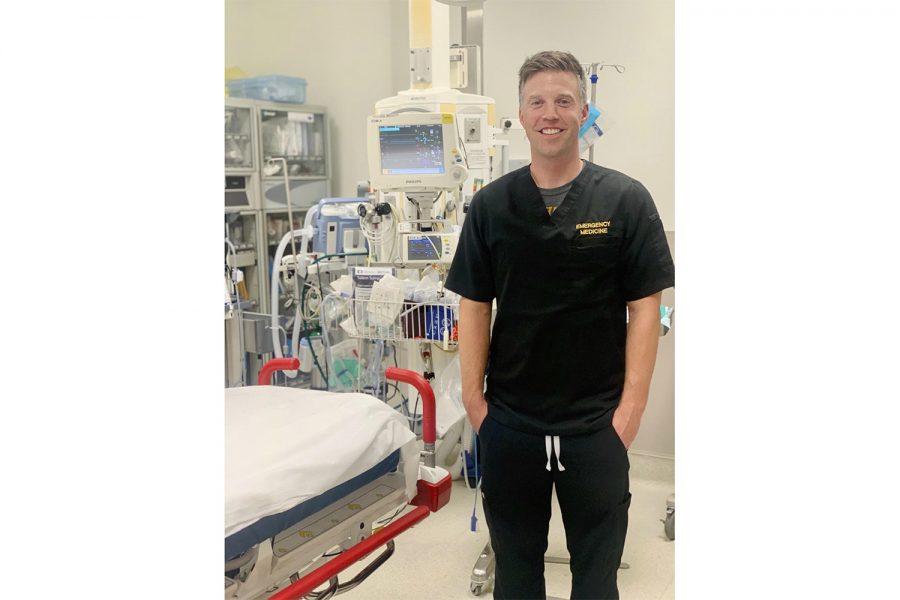University of Iowa assistant professor co-founds first pharmacotherapy network to increase collaboration among pharmacotherapy centers easier
Brett Faine’s EMPHARM-NET secures its first funding in light of the upcoming publication of his first paper
April 5, 2021
Co-founded by University of Iowa assistant professor Brett Faine, the Emergency Medicine Pharmacy Research Network, or EMPHARM-NET, establishes a network of researchers at 15 different centers across the country to evaluate pharmacotherapy practices.
Pharmacotherapy is the treatment of diseases, especially mental illness, with drugs, according to Merriam-Webster.
Faine, who is an assistant professor in the department of emergency medicine at the UI and a clinical pharmacy specialist, co-founded EMPHARM-NET alongside Megan Rech, a clinical pharmacist at Loyola University.
Rech said Faine had been working with her on the PHarmacist Avoidance or Reductions in Medical Costs in patients presenting the EMergency Department project, or PHARM-EM study, in 2019. After his participation in the project, Faine reached out to Rech, wanting to create a research network for emergency medicine pharmacists using the contacts that Rech had developed from the national project.
EMPHARM-NET was then founded in December 2019, Rech said, and while not particularly difficult, building up any big research endeavor such as this takes time and contacts.
Faine said EMPHARM-NET was a way to collaborate with pharmacists all across the U.S.
“We knew that there were other EM pharmacists across the nation that were doing active research at their institutions as well,” Faine said. “We just thought it would be better if we all collaborated together.”
With 15 centers across the country ranging from large urban areas like New York City to less populated locations like Iowa City and the University of Iowa, Faine said the research becomes more applicable to a general population.
RELATED: University of Iowa Hospitals and Clinics performing trial to reduce celiac disease symptoms
Recently, Faine said EMPHARM-NET is ready to publish their first collaborative project called the Urinary Tract Infections in the Emergency Departments project.
The project evaluates antibiotic resistance patterns and rates with UTIs in emergency departments, he said.
Rech said COVID-19 slowed the group’s start-up process more by slowing down productivity with the first research project by a few months.
“I think as a group we all were kind of pulled in different ways, due to the pandemic,” Faine said. “Fortunately, we all still stuck together, and we were still able to push forward with our first project and which ultimately ended up in us receiving funding.”
Faine said UI Emergency Medicine Physician David Talan helped with starting EMPHARM-NET, as well. For over 25 years, Talan said he has put together networks of emergency departments through a grant from the Centers of Disease Control and Prevention.
Talan said he still takes an active role in networks he’s created like Emergency ID Net, which is a nationwide network that monitors emerging diseases.
Networks such as these are important for our understanding of medical problems, he added.
“If you can study them [medical problems] and do surveillance for them, and not just that one location, that’s the power of a network,” Talan said. “You can study things in greater numbers of people. You can also identify variation frequency bands and problems, so that you learn more.”
In the future, Rech hopes the group can publish an annual paper summarizing the top pharmacotherapy articles of the year and continue to bring in new funding.
“The difficult part is kind of turning the research network into a legacy where we can have a lot of funding associated with it and have consistent funding,” Rech said. “It’s been a work in progress, but I feel like we’re, we’re getting there.”














